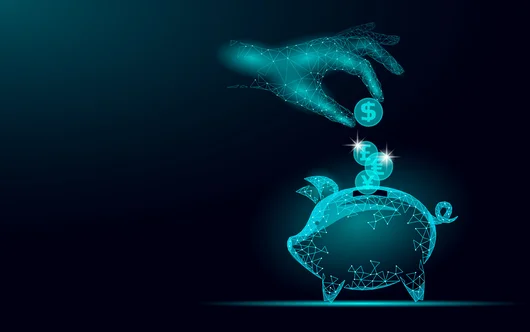In metaverse, only (virtual) money exists that is programmed specifically for that purpose. And then programmed in such a way that the money forms a system that only does what it was once meant to do economically: provide for the exchange of mutually incomparable things that we value. Thus the system (the unit of account) can easily be used to organize society in a certain socioeconomic way. Meta-humans can have a basic income there, for example, so that virtual poverty does not exist. Being active-in-exchange-for-more-money therefore becomes a free choice. And profit-making by virtual corporations, including speculative profits, interest or dividends, can be limited or redistributed to what is needed to exist and/or innovate. Harmful reflexes of physical shareholders or lenders no longer play a role in that case. As a principle, possession can further be limited per meta-human or entity to a certain value. Far-reaching enrichment (even at the expense of others) is then no longer profitable.
The role of money in a meta-economy

In the article 'The promises of a metaverse', we discussed the possibilities of metaverse. Within that metaverse, blockchain has a big role to play as a carrier of a virtual economy. Edwin Fennema (business developer metaverse at Centric Startup & Innovation) explains what such a virtual economy looks like.
Means without power
Virtual money in metaverse - and the transactions with it - take place in a decentralized blockchain network of nodes, in which no bank or government can take control of the inhabitants. Regular money from the physical world does not exist in metaverse. The same is true of crypto, although such forms are exchangeable for the virtual money in metaverse. Whereas money and its possession in the physical world has actually become an end - a source of power - money in metaverse is primarily a means, without any power whatsoever. Once in metaverse, therefore, money cannot be exchanged back (money stays in).
So wealth in the physical world never translates to a distinctive, powerful position in metaverse (if such a position exists at all). Conversely, you can still take a wealth position in the physical world on virtual money from metaverse. This is done by claiming it as a digital asset, just like any other digital asset that can be owned decentrally, in a blockchain construct (such as NFT). However, it does not allow itself to be spent anywhere outside of metaverse.
Multiple types of money
The fact that metaverse gives its own meaning to money does not mean that there is nothing to be gained in metaverse. There are several types of money, each with its own functions that are programmed to be unsuitable for stealing from others. By the way, giving or donating is always possible. Functionally, money in metaverse distinguishes between meta-credits, which each participant receives periodically, and meta-stones, which are paid extra based on achievements or certain forms of loyalty. In addition, there are local coins, which are intended for transactions with local government in metaverse and meta trade objects, which are intended only for transactions with local businesses and private organizations that have a presence in metaverse.

Wallet
An exchange rate exists between credits and stones on one side and coins and objects on the other, based on predetermined, socioeconomic principles of metaverse. Each virtual asset position or transaction of a participant, or of another, is recorded in a meta-wallet (holding place). This contains specified assets, neutral receipts, deposits from the physical world, performance income, expenses, debts and programmed contracts. A wallet is not public, but it is substantively part of the decentralized blockchain system on which the economy of metaverse is built. It is accessible, as a foundation of financial truth and desirability, in a network of nodes beneath the meta-economy for checks and balances. To keep the connection to the physical world transparent, wallets can be decrypted by the owner. Not the other way around.
Program script
Since money is programmed in a metaverse and transactions with it take place in a decentralized network of nodes, it is necessary that all kinds of conditions under which those transactions take place are predefined. In practice, this means that transactions must meet certain criteria before they are executed or can be accepted as true. These conditions are defined in smart contracts. A somewhat misleading term, since it is neither a legally binding nor a self-learning contract, but nevertheless, a smart contract is a program script that, at the decentralized level, automatically ensures that possession and transaction guidelines are met. Examples include the need for delivery before payment is made, the need for a registration or subscription before something can be used, the need to perform something before something is paid for, the conditions under which an investment is made, the duty to share property, the capping and redistribution of excess monetary assets, management of rights under a license, or, something quite different, penalties on practices and transactions that are undesirable in metaverse.


